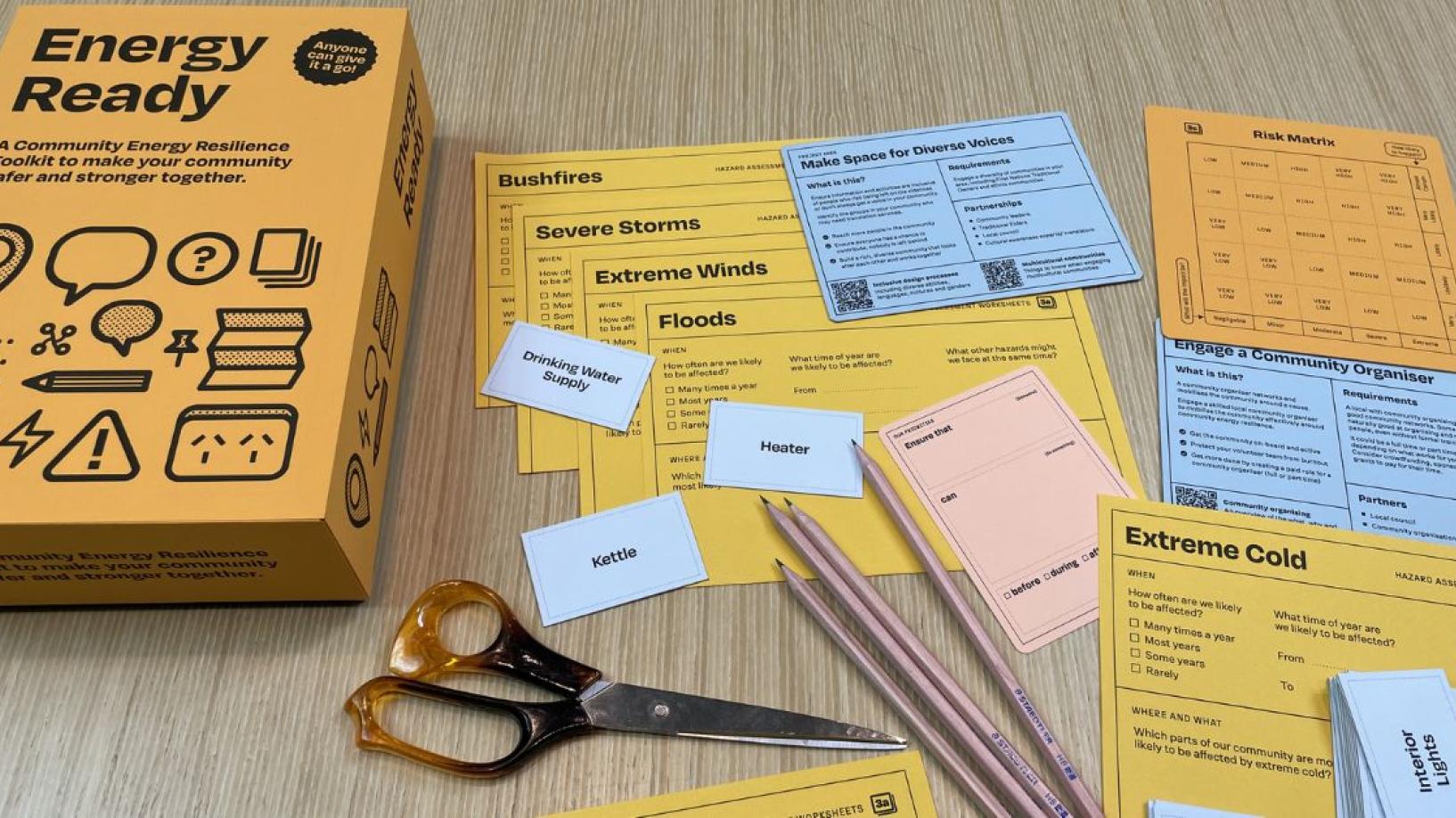As Australian communities head into what is predicted to be the hottest summer on record, a new free resource offers help to plan, respond to, and bounce back from climate-related disasters.
The Energy Ready Toolkit is a first-of-its-kind free resource for Australian communities, to help them prepare a plan for if the power goes out, and ensure they remain energy resilient.
The toolkit is the result of a year-long process of research and consultation, funded by Energy Consumers Australia’s Grants Program and delivered in partnership with the UTS Institute for Sustainable Futures (ISF), Community Power Agency and Parallel Lines.
CEO of Energy Consumers Australia Brendan French says, “Consumers tell us that they want to take steps to be more energy resilient but they don’t know what to do, where to turn to, or how to do it. This means they need support to make the right decisions that suit their situation.
Energy Ready equips communities to be more energy resilient in the face of an emergency in ways that meet their unique needs. It’s important that communities take steps now to protect themselves so they can be summer ready.”
It was important to the Energy Ready team that the process of developing the toolkit involved community members. Engagement Coordinator at Community Power Agency, Elianor Gerrard says, “Communities with lived experience of natural disasters and extended power outages have a wealth of knowledge and expertise to share on what to do or what not to do in crisis situations. They also know how to build local resilience.
We’re pleased our work to facilitate community input into this timely resource ensures that it is grounded in the rich insights of communities.”
Events like the 2019 Mallacoota fires and the 2022 Lismore floods, which led to power outages caused through damage of power lines and infrastructure, can leave people unable to communicate, cook and store food, access money and more.
The Energy Ready toolkit contains the Energy Ready guidebook and materials for a series of activities communities can do to examine the risks they face, identify shared priorities and develop a plan of action that’s tailored to their unique needs and values.
The Energy Ready guidebook explains what energy resilience means for communities and includes advice from communities that have experienced, or are at high risk of experiencing, climate-related disasters. This information was collected at a series of workshops in Mullumbimby and Lake Macquarie in New South Wales, Gympie and Magnetic Island in Queensland, and Bonang and Mornington Peninsula in Victoria.
The Energy Ready toolkit is an essential resource for local councils, community groups, and emergency authorities. Once communities work through the activities, they will be better connected, stronger and safer with a robust energy-resilience plan and an inventory of resources in place.
Dr Sarah Niklas, Research Consultant at the UTS Institute for Sustainable Futures, says,
"The Energy Ready toolkit empowers communities to achieve a high degree of energy resilience, helping them prepare for increasingly extreme weather events.
The toolkit can be used to support collaboration and help community members work together to make the best use of their local assets, knowledge, connections, and capacity to achieve a higher state of energy resilience.

